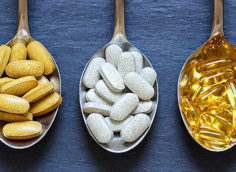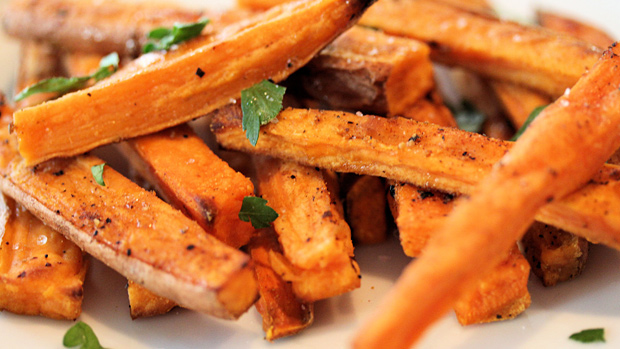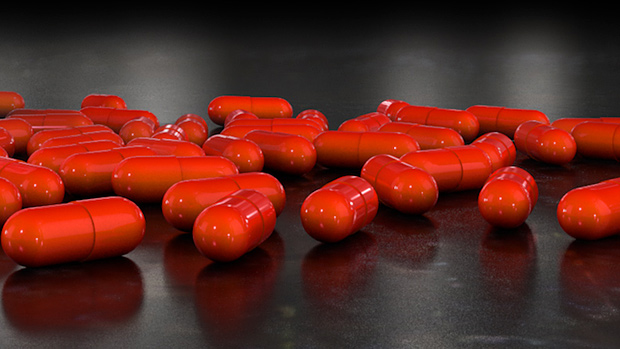Fat cells are always looked at as the enemy, yet once they were our closest allies. Back in harder times when food was scarce, humans relied upon fat as a trusty backup fuel source.
Recently, however, a dark cloud of hate has enshrouded the once beloved fat cell. No longer is it seen as a benevolent contingency plan in times of need, but rather an irritating physique pariah that just pads our waist line, making us look older and less attractive than we think we are.
But what if we could get our fat cells to work for us and not against us? What if we could get our fat cells to actually help us burn more fat?
Sound like science fiction? It isn't.
Enter Adiponectin
Adiponectin is an adipokine. Adipokines are hormones released exclusively from your fat cell (leptin is probably the most well-known adipokine).
Adiponectin is the lean body hormone responsible for:
- Increasing insulin sensitivity
- Increasing calorie burning
- Curbing appetite
- Increasing muscle efficiency
Wanna get some more of this stuff? Optimizing your adiponectin levels is actually simple. Here are the first three steps.
1. Antioxidants
Antioxidants have a powerful affect on adipokines, especially adiponectin. Antioxidants primarily act at the mRNA level, increasing the expression of adiponectin genes by your fat cells.
There are three antioxidants that stand out regarding their ability to increase adiponectin, but as with many antioxidants, achieving the greatest effect requires more than just eating a lot of a certain food – you need a concentrated supplement.
- Raspberry Ketones. Raspberry ketones are an antioxidant found in raspberries (and Biotest's Hot-Rox® Extreme) that has several different actions within a fat cell. When exploring the efficacy of raspberry ketones on weight loss, Korean researchers found that it increases adiponectin expression and secretion. (1) Raspberry ketones also increase the availability of hormone sensitive lipase, which is put in charge of slicing up stored fat so that it can be used for energy. (2)
- Cyanidin 3-glucoside. The compound, also known as Indigo-3G®, is an antioxidant isolated from blueberries that has a wide range of anti-obesity activity within the fat cell, one of which is increasing adiponectin release and adiponectin gene expression. (3, 4)
- Curcumin. I wrote an article on the benefits of curcumin and how it can block fat synthesis while increasing fat oxidation, and inhibit "the production of the mRNA of key enzymes involved in the storage of fatty acids." What I didn't mention, however, is that curucmin also fights inflammation at the fat cell level while also increasing adiponectin production (not that you needed another reason to take curcumin). (5)

2. Monounsaturated Fats
Continually dubbed the 'heart healthy' fat, monounsaturated fats are found in:
- Avocados
- Olive oil
- Olives
- Macadamia nuts
- Peanuts
- Sesame oil
- Beef
Along with being good for your heart, monounsaturated fats are also good for maintaining a lean body. Research published in Diabetes Care found that replacing saturated fat with monounsaturated fat (moving saturated fat from 23% to 9% of calories) resulted in increases in fasting adiponectin levels.
Furthermore, making the dietary switch to more monounsaturated fats led to a redistribution of body fat away from the abdomen. This is amazing considering total calorie intakes remained unchanged!
3. Move More and Get Lean
Adiponectin levels in your body are inversely proportional to the amount of body fat you have. This is a classic case of the rich getting richer. The leaner you are, the higher your adiponectin levels will be, the more you'll burn fat, and the easier it will be to stay lean.
However, if you find yourself in a perpetual dieting offseason and are carrying around more weight than you should, fortunately Mother Nature has given you an out – exercise.
Exercise increases adiponectin levels (6-9), and it seems that how much correlates to your level of fatness. This is good news – the bigger your fat cells, the greater effect exercise will have on adiponectin, while the leaner you are (and the smaller your fat cells), the lesser of an effect exercise will have on adiponectin. (10)
It doesn't seem like type of exercise matters either, so you'll benefit equally from doing intervals compared to weight training compared. The key is to move more.
When Chris Shugart put together the Velocity Diet, he included a daily walk first thing in the morning (after taking Hot-Rox® Extreme, which contains raspberry ketones) as part of the protocol.
If you do this every day for 28 days, you'll add an extra 28 hours of movement – more total movement time than most people do all month!
Research also shows us that people who move more have higher levels of adiponectin, so Chris' Hot-Rox® Extreme/morning walk combination is a good adiponectin increasing protocol!
Lean for Life?
Truthfully, these tips are pretty straightforward. You don't have any excuse not to be maximizing adiponectin levels. Get some antioxidant supplements, move more, eat more monounsaturated fats, and you'll be on the fast track to getting lean for life.
References
- Park KS. Raspberry ketone increases both lipolysis and fatty acid oxidation in 3T3-L1 adipocytes. Planta Med 2010;76:1654-1658.
- Morimoto C, Satoh Y, Hara M, Inoue S, Tsujita T, Okuda H. Anti-obese action of raspberry ketone. Life Sci 2005;77:194-204.
- Tsuda T, Ueno Y, Yoshikawa T, Kojo H, Osawa T. Microarray profiling of gene expression in human adipocytes in response to anthocyanins. Biochemical pharmacology 2006;71:1184-1197.
- Tsuda T, Ueno Y, Aoki H, et al. Anthocyanin enhances adipocytokine secretion and adipocyte-specific gene expression in isolated rat adipocytes. Biochem Biophys Res Commun 2004;316:149-157.
- Weisberg SP, Leibel R, Tortoriello DV. Dietary Curcumin Significantly Improves Obesity-Associated Inflammation and Diabetes in Mouse Models of Diabesity. Endocrinology 2008;149:3549-3558.
- Yoshida H, Ishikawa T, Suto M, et al. Effects of supervised aerobic exercise training on serum adiponectin and parameters of lipid and glucose metabolism in subjects with moderate dyslipidemia. J Atheroscler Thromb 2010;17:1160-1166.
- Guo W, Kawano H, Piao L, Itoh N, Node K, Sato T. Effects of aerobic exercise on lipid profiles and high molecular weight adiponectin in Japanese workers. Internal medicine (Tokyo, Japan) 2011;50:389-395.
- Mujumdar PP, Duerksen-Hughes PJ, Firek AF, Hessinger DA. Long-term, progressive, aerobic training increases adiponectin in middle-aged, overweight, untrained males and females. Scand J Clin Lab Invest 2011;71:101-107.
- Bouassida A, Chamari K, Zaouali M, Feki Y, Zbidi A, Tabka Z. Review on leptin and adiponectin responses and adaptations to acute and chronic exercise. British journal of sports medicine 2010;44:620-630.
- Miyazaki S, Izawa T, Ogasawara JE, et al. Effect of exercise training on adipocyte-size-dependent expression of leptin and adiponectin. Life Sci 2010;86:691-698.




